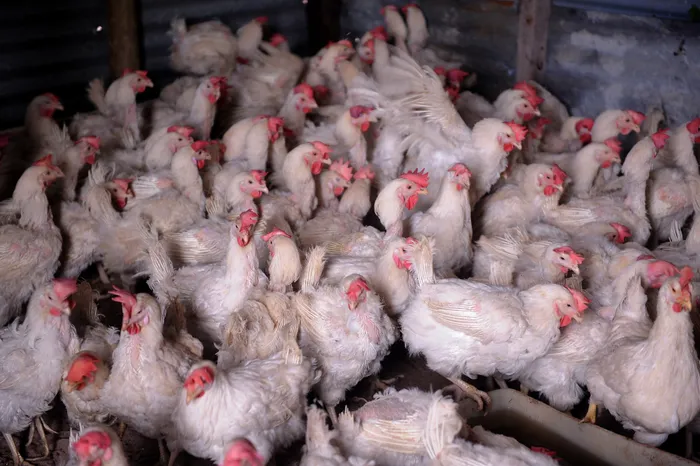Merlog Foods warns SA poultry supply crisis could worsen despite lifted import ban
AGRICULTURE

Merlog Foods, one of South Africa's largest importers of chicken and chilled meats, said they still expect a shortage of mechanically deboned meat (MDM) despite the department of Agriculture (DOA) completely lifting a ban on imports of poultry and poultry products from Brazil due to an Avian Flu outbreak earlier this week
Image: Supplied
Merlog Foods has voiced concerns over a lingering shortage of mechanically deboned meat (MDM) despite the Department of Agriculture (DoA) lifting an eight-week ban on poultry imports from Brazil due to an Avian Flu outbreak earlier this week.
The ban, triggered by a case of bird flu on a single farm in the Brazilian state of Rio Grande do Sul, had cut off 95% of South Africa’s MDM supply from 15 May
Merlog Foods manager, Georg Southey said it was expected to take a few months for supply and prices of the input material for polony and sausages to stabilise.
“We, however, believe this situation can reoccur in the case of another bird flu infection in Brazil,” he said.
Southey said that what was needed was an agreement between the two countries on a regionalisation protocol that would allow unaffected areas of Brazil to keep exporting MDM and chicken, so that a future isolated outbreak does not halt shipments from a very large country.
“Regionalisation is a scientific protocol supported by the World Organisation for Animal Health, and an agreement on this between the two countries is imperative. The DoA must urgently engage with Brazil to agree on a regionalisation protocol to prevent a full country ban in the instance of a future infection of bird flu in Brazil,” he said.
“This would be similar to a temporary year-long agreement with the US that allows individual states within America to self-declare when they are free of bird flu and continue exporting to South Africa.”
Southey added that the ban on MDM and items such as chicken livers from Brazil has amplified South Africa’s food security crisis, with an estimated 100 million meals lost for every week of the eight weeks that shipments stalled.
“Prices of MDM have already jumped 140%, and shortages are affecting millions of meals, which is putting pressure on school feeding programmes and food processors. The knock-on effects include rising food inflation, job losses in the food processing value chain, and increased fears regarding food security and nutrition. Brazilian suppliers stopped doing sample tests as they were unsure when trade would resume and must now conduct these tests.”
Merlog Foods expects that imports will resume in the week of 14 July.
However, Southey said with 6 000 tonnes per week typically required, and buffer stocks now exhausted, the effects of the shortage will be felt for months.
“With ships at sea for 28 days or more, it will take at least six to eight weeks to ramp up production, restore shipping schedules, and replenish supply chains,” Southey said.
“Consumers can expect higher prices on polony and Viennas until October, with normal supply and pricing only expected to stabilise by November 2025. Merlog Foods is relieved that there has been an agreement in solving the immediate crisis.”
Gordon Nicoll, chairperson of South African Meat Processors Association, said they were relieved that the deadlock between South Africa and Brazil has been broken.
“Our members were starting to run out of stock of MDM which meant that shoppers and consumers were about to be confronted by a lack of Viennas, Polony, Russians, braai wors, on the shelves,” Nicoll said.
“Meat processors were facing widescale layoffs as factories, for almost two months, have been unable to import MDM due to the ban on poultry and poultry products from Brazil.”
Nicoll added that they will still not receive imports of MDM for around five weeks – so towards the middle/end of August – which means the situation was still precipitous.
“The fact that we now have some certainty as to when we will receive new stock makes it easier to plan and allocate resources. We would still, however, encourage the government to work on a permanent solution for when we do encounter this situation again.”
BUSINESS REPORT